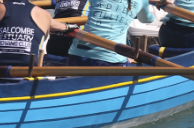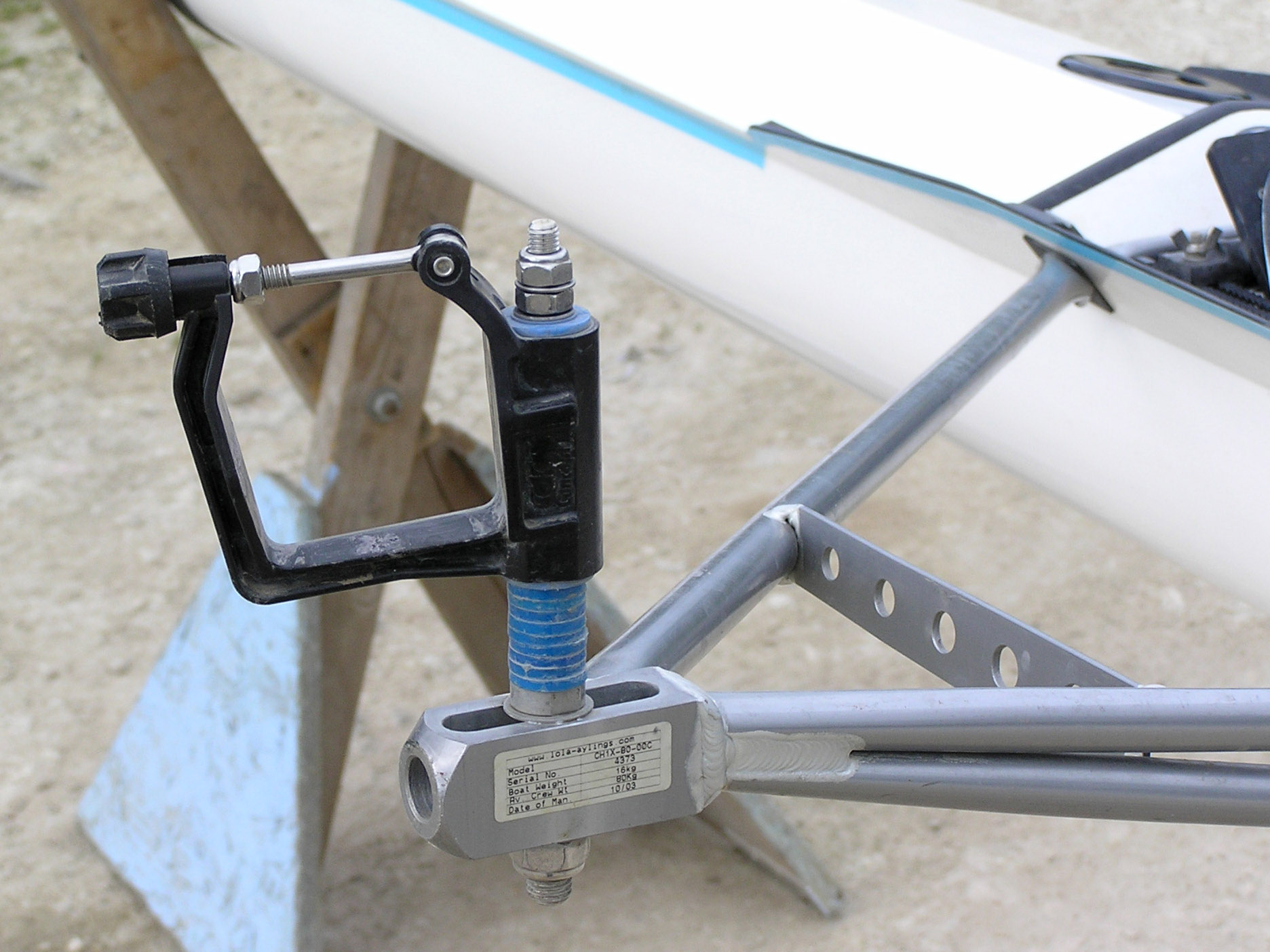|
Marina Znak
Marina Nikolayevna Znak-Sinelshchikova (; born 17 May 1961 in East Berlin, East Germany) is a Belarusian rower, who won a bronze medal at the 1996 Summer Olympics The 1996 Summer Olympics (officially the Games of the XXVI Olympiad, also known as Atlanta 1996 and commonly referred to as the Centennial Olympic Games) were an international multi-sport event held from July 19 to August 4, 1996, in Atlanta, ... while representing Belarus. Before 1991, she competed internationally for the Soviet Union, winning two golds and a silver medal for the Soviets at the World Rowing Championships from 1985 to 1991. While appearing at the World Rowing Championships for Belarus from 1995 to 1999, she won a further two gold medals and a bronze. References * * 1961 births Living people Belarusian female rowers Rowers from Berlin Rowers at the 1988 Summer Olympics Rowers at the 1992 Summer Olympics Rowers at the 1996 Summer Olympics Rowers at the 2000 Summer Olympics Olym ... [...More Info...] [...Related Items...] OR: [Wikipedia] [Google] [Baidu] |
East Berlin
East Berlin (; ) was the partially recognised capital city, capital of East Germany (GDR) from 1949 to 1990. From 1945, it was the Allied occupation zones in Germany, Soviet occupation sector of Berlin. The American, British, and French sectors were known as West Berlin. From 13 August 1961 until 9 November 1989, East Berlin was separated from West Berlin by the Berlin Wall. The Western Allied powers did not recognize East Berlin as the GDR's capital, nor the GDR's authority to govern East Berlin. For most of its administrative existence, East Berlin was officially known as Berlin, capital of the GDR () by the GDR government. On 3 October 1990, the day Germany was officially German reunification, reunified, East and West Berlin formally reunited as the city of Berlin. Overview With the London Protocol (1944), London Protocol of 1944 signed on 12 September 1944, the United States, the United Kingdom, and the Soviet Union decided to divide Nazi Germany, Germany into three occ ... [...More Info...] [...Related Items...] OR: [Wikipedia] [Google] [Baidu] |
Belarusian Female Rowers
Belarusian may refer to: * Something of, or related to Belarus * Belarusians, people from Belarus, or of Belarusian descent * A citizen of Belarus, see Demographics of Belarus * Belarusian language Belarusian (, ) is an East Slavic languages, East Slavic language. It is one of the two Languages of Belarus, official languages in Belarus, the other being Russian language, Russian. It is also spoken in parts of Russia, Lithuania, Latvia, Polan ... * Belarusian culture * Belarusian cuisine * Byelorussian Soviet Socialist Republic See also * * Belorussky (other) {{disambig Language and nationality disambiguation pages ... [...More Info...] [...Related Items...] OR: [Wikipedia] [Google] [Baidu] |
World Rowing Championships Medalists For The Soviet Union
The world is the totality of entities, the whole of reality, or everything that exists. The nature of the world has been conceptualized differently in different fields. Some conceptions see the world as unique, while others talk of a "plurality of worlds". Some treat the world as one simple object, while others analyze the world as a complex made up of parts. In scientific cosmology, the world or universe is commonly defined as "the totality of all space and time; all that is, has been, and will be". Theories of modality talk of possible worlds as complete and consistent ways how things could have been. Phenomenology, starting from the horizon of co-given objects present in the periphery of every experience, defines the world as the biggest horizon, or the "horizon of all horizons". In philosophy of mind, the world is contrasted with the mind as that which is represented by the mind. Theology conceptualizes the world in relation to God, for example, as God's creation, ... [...More Info...] [...Related Items...] OR: [Wikipedia] [Google] [Baidu] |
Olympic Medalists In Rowing
Olympic or Olympics may refer to Sports Competitions * Olympic Games, international multi-sport event held since 1896 ** Summer Olympic Games ** Winter Olympic Games * Ancient Olympic Games, ancient multi-sport event held in Olympia, Greece between 776 BC and 393 AD * Olympic (greyhounds), a competition held annually at Brighton & Hove Greyhound Stadium Clubs and teams * Adelaide Olympic FC, a soccer club from Adelaide, South Australia * Fribourg Olympic, a professional basketball club based in Fribourg, Switzerland * Sydney Olympic FC, an Australian soccer club * Olympic Club (Barbacena), a Brazilian football club based in Barbacena, Minas Gerais state * Olympic Mvolyé, a Cameroonian football club based in Mvolyé * Olympic Club (Egypt), a football and sports club based in Alexandria * Blackburn Olympic F.C., an English football club based in Blackburn, Lancashire * Rushall Olympic F.C., an English football club based in Rushall * FC Olympic Tallinn, an Est ... [...More Info...] [...Related Items...] OR: [Wikipedia] [Google] [Baidu] |
Soviet Female Rowers
The Union of Soviet Socialist Republics. (USSR), commonly known as the Soviet Union, was a transcontinental country that spanned much of Eurasia from 1922 until it dissolved in 1991. During its existence, it was the largest country by area, extending across eleven time zones and sharing borders with twelve countries, and the third-most populous country. An overall successor to the Russian Empire, it was nominally organized as a federal union of national republics, the largest and most populous of which was the Russian SFSR. In practice, its government and economy were highly centralized. As a one-party state governed by the Communist Party of the Soviet Union (CPSU), it was a flagship communist state. Its capital and largest city was Moscow. The Soviet Union's roots lay in the October Revolution of 1917. The new government, led by Vladimir Lenin, established the Russian SFSR, the world's first constitutionally communist state. The revolution was not accepted by all wi ... [...More Info...] [...Related Items...] OR: [Wikipedia] [Google] [Baidu] |
Olympic Rowers For The Soviet Union
Olympic or Olympics may refer to Sports Competitions * Olympic Games, international multi-sport event held since 1896 ** Summer Olympic Games ** Winter Olympic Games * Ancient Olympic Games, ancient multi-sport event held in Olympia, Greece between 776 BC and 393 AD * Olympic (greyhounds), a competition held annually at Brighton & Hove Greyhound Stadium Clubs and teams * Adelaide Olympic FC, a soccer club from Adelaide, South Australia * Fribourg Olympic, a professional basketball club based in Fribourg, Switzerland * Sydney Olympic FC, an Australian soccer club * Olympic Club (Barbacena), a Brazilian football club based in Barbacena, Minas Gerais state * Olympic Mvolyé, a Cameroonian football club based in Mvolyé * Olympic Club (Egypt), a football and sports club based in Alexandria * Blackburn Olympic F.C., an English football club based in Blackburn, Lancashire * Rushall Olympic F.C., an English football club based in Rushall * FC Olympic Tallinn, an Estonia ... [...More Info...] [...Related Items...] OR: [Wikipedia] [Google] [Baidu] |
Rowers At The 2000 Summer Olympics
Rowing is the act of propelling a human-powered watercraft using the sweeping motions of oars to displace water and generate reactional propulsion. Rowing is functionally similar to paddling, but rowing requires oars to be mechanically attached to the boat, and the rower drives the oar like a lever, exerting force in the ''same'' direction as the boat's travel; while paddles are completely hand-held and have no attachment to the boat, and are driven like a cantilever, exerting force ''opposite'' to the intended direction of the boat. In some strict terminologies, using oars for propulsion may be termed either "pulling" or "rowing", with different definitions for each. Where these strict terminologies are used, the definitions are reversed depending on the context. On saltwater a "pulling boat" has each person working one oar on one side, alternating port and starboard along the length of the boat; whilst "rowing" means each person operates two oars, one on each side of the ... [...More Info...] [...Related Items...] OR: [Wikipedia] [Google] [Baidu] |
Rowers At The 1996 Summer Olympics
Rowing is the act of propelling a human-powered watercraft using the sweeping motions of oars to displace water and generate reactional propulsion. Rowing is functionally similar to paddling, but rowing requires oars to be mechanically attached to the boat, and the rower drives the oar like a lever, exerting force in the ''same'' direction as the boat's travel; while paddles are completely hand-held and have no attachment to the boat, and are driven like a cantilever, exerting force ''opposite'' to the intended direction of the boat. In some strict terminologies, using oars for propulsion may be termed either "pulling" or "rowing", with different definitions for each. Where these strict terminologies are used, the definitions are reversed depending on the context. On saltwater a "pulling boat" has each person working one oar on one side, alternating port and starboard along the length of the boat; whilst "rowing" means each person operates two oars, one on each side of t ... [...More Info...] [...Related Items...] OR: [Wikipedia] [Google] [Baidu] |
Rowers At The 1992 Summer Olympics
Rowing is the act of propelling a human-powered watercraft using the sweeping motions of oars to displace water and generate reactional propulsion. Rowing is functionally similar to paddling, but rowing requires oars to be mechanically attached to the boat, and the rower drives the oar like a lever, exerting force in the ''same'' direction as the boat's travel; while paddles are completely hand-held and have no attachment to the boat, and are driven like a cantilever, exerting force ''opposite'' to the intended direction of the boat. In some strict terminologies, using oars for propulsion may be termed either "pulling" or "rowing", with different definitions for each. Where these strict terminologies are used, the definitions are reversed depending on the context. On saltwater a "pulling boat" has each person working one oar on one side, alternating port and starboard along the length of the boat; whilst "rowing" means each person operates two oars, one on each side of the ... [...More Info...] [...Related Items...] OR: [Wikipedia] [Google] [Baidu] |




